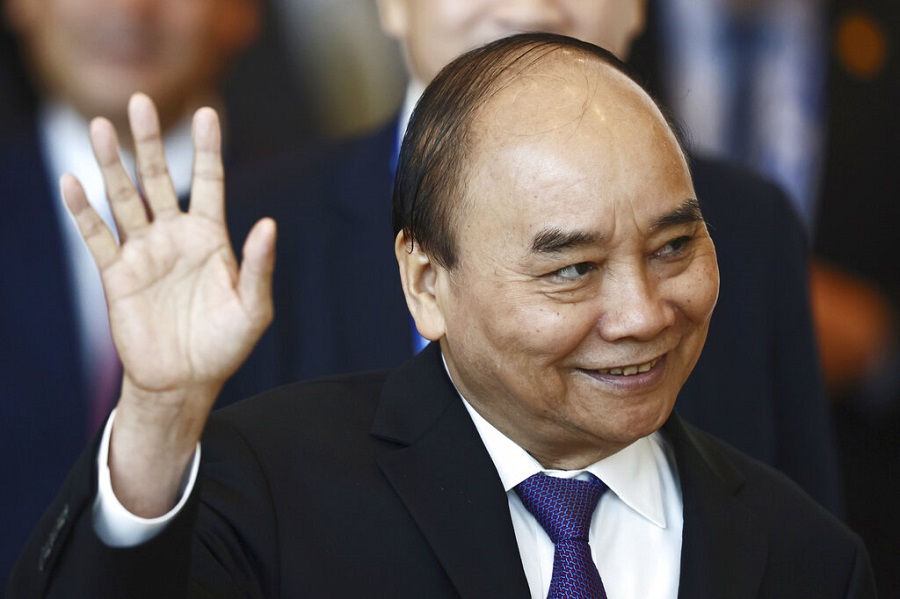
Vietnamese President Nguyen Xuan Phuc resigned Tuesday, becoming the most senior member of the government to step down after a series of high-profile corruption scandals for which he was held responsible.
The state Vietnam News Agency reported that he had resigned at a session of the ruling Communist Party's Central Committee that was held “to consider and give opinions on Comrade Nguyen Xuan Phuc’s wish to stop holding positions, quit work and retire.” The language of the announcement strongly suggested that he was forced to step down.
Phuc, 68, began serving in government at the provincial level in 1979 and took his first position in national government in 2006. He joined the Politburo, the highest-ranking party body, in 2011, and was prime minister from 2016 to 2021, when he was elected president by the National Assembly.
The post of president in Vietnam is largely ceremonial. The most powerful position, Communist Party general secretary, is currently held by Nguyen Phu Trong, who in 2021 won a rare third five-year term in office. His hallmark has been a long-running anti-corruption campaign, which in his second term targeted two former Cabinet ministers and Hanoi’s former mayor.
An official statement published in state media praised Phuc for his efforts as prime minister in battling the COVID-19 pandemic.
It added, however, that he bore political responsibility as the country’s top executive for serious scandals involving his subordinates, including two deputy prime ministers and three other ministers. The statement noted that the two deputy prime ministers had resigned from their positions and criminal proceedings had been launched against two other ministers and many other officials. Several of the scandals involved corruption related to pandemic control measures.
The positions from which Phuc resigned also included Politburo membership, the executive committee of the Central Committee and chairman of the National Defense and Security Council.
As prime minister, Phuc led Vietnam as it became further integrated in the global economy and sustained 7% economic growth until COVID-19 hit the world.
With strict measures including a nationwide lockdown, Vietnam managed to contain the spread of the virus in the first year of the pandemic and quickly resumed business and manufacturing. It was among a handful of countries in 2020 that recorded positive economic growth.
However, as in several other Asian nations that initially staved off serious outbreaks, cases shot up after mid-2021 with the spread of more highly transmissible variants.

